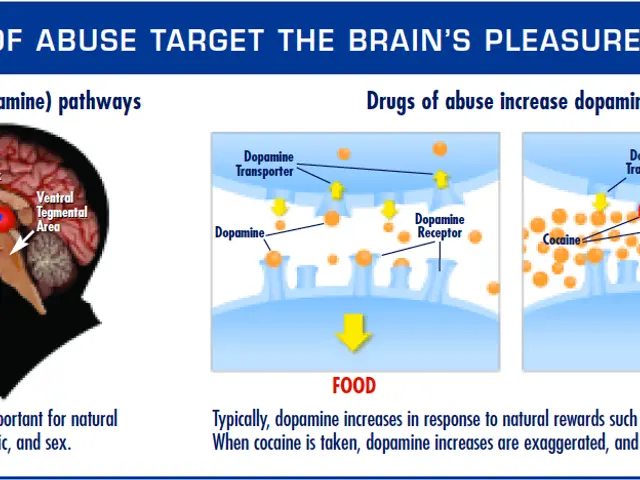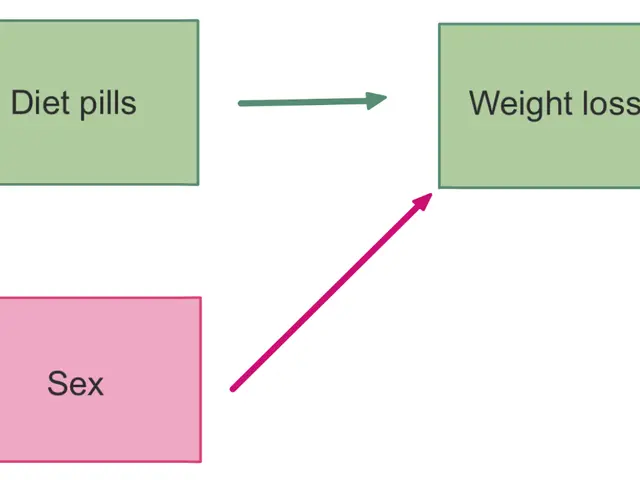Uncovering Resilience: Recovery Following a Heartbreaking Reversal
Dealing with disappointment can be a challenging journey, but it's an experience that many of us face at some point in our lives. Whether it's unmet expectations, failed plans, or dashed hopes, disappointment can stir a range of emotions such as sadness, frustration, anger, and even depression. However, it's important to remember that there are strategies to help us cope, recover, and grow stronger.
One key approach is practicing self-compassion. Be gentle with yourself and recognise that recovery and coping are journeys centred on progress rather than perfection. Treating yourself kindly helps build resilience through challenging moments.
Another strategy is challenging negative thoughts. Therapy, journaling, or conversations with empathetic individuals can help identify and reframe harmful, self-critical thinking. This cognitive restructuring helps reduce feelings of guilt or hopelessness associated with disappointment.
Making an emotional inventory is also essential. Consciously acknowledging and naming the emotions you are experiencing—such as frustration, fear, grief, or relief—allows you to begin the healing process. Facing your feelings is the first step towards grieving losses and starting to rebuild with clarity and intention.
Celebrating small wins is another crucial aspect. Recognising and appreciating even minor successes fosters motivation and a positive mindset to move forward.
Reaching out for support is vital in cultivating a supportive network. Connecting with family, friends, support groups, or counselors who understand your struggles provides empathy, encouragement, and practical advice, helping you feel less alone.
Avoiding triggers and setting healthy boundaries is equally important. Reducing exposure to people, places, or situations that may worsen disappointment or lead to relapse can protect emotional well-being and prevent negative influences from undermining your progress.
Viewing setbacks as learning opportunities is another effective strategy. Instead of seeing disappointment or relapse as failures, reframe them as chances for growth and insight. Understanding the circumstances surrounding setbacks can guide meaningful changes and strengthen future resilience.
Engaging in activities that bring joy and align with values can help find meaning and purpose, providing a sense of fulfillment and helping navigate disappointments more effectively. Self-care, which includes taking care of physical, emotional, and mental well-being, is also crucial in dealing with disappointment.
Embracing change and adaptability can help navigate disappointments and find new opportunities for growth. When feelings of disappointment become overwhelming or interfere with daily life, seeking professional help and guidance may be necessary.
Surrounding oneself with people who understand and validate feelings of disappointment can provide comfort and reassurance. Reframing perspective and viewing disappointments as opportunities for learning and personal development can aid in this process.
Remember, disappointment is a natural emotion, and it's okay to feel it. The effects of disappointment on mental health can be profound, lowering self-esteem and self-confidence, and triggering anxiety and stress. However, by implementing these strategies, we can navigate disappointments more effectively and come out stronger on the other side.
[1] Mental Health America. (2021). Coping with Disappointment. Retrieved from https://www.mhanational.org/coping-disappointment [2] Mayo Clinic. (2021). Dealing with Disappointment. Retrieved from https://www.mayoclinic.org/healthy-lifestyle/adult-health/in-depth/disappointment/art-20046048 [3] HelpGuide.org. (2021). Overcoming Disappointment. Retrieved from https://www.helpguide.org/articles/emotional-health/overcoming-disappointment.htm [4] Psych Central. (2021). How to Cope with Disappointment. Retrieved from https://psychcentral.com/health/coping-with-disappointment
- Cultivating resilience through self-compassion and mental-health practices can help individuals cope with disappointment by reducing the negative impact on their emotional well-being.
- Personal development strategies, such as cognitive restructuring and emotional inventory, can aid in reframing negative thoughts and promote healing after experiencing disappointment.
- Engaging in health-and-wellness activities and maintaining a positive mindset are crucial components of navigating disappointment, fostering resilience, and promoting overall well-being.







